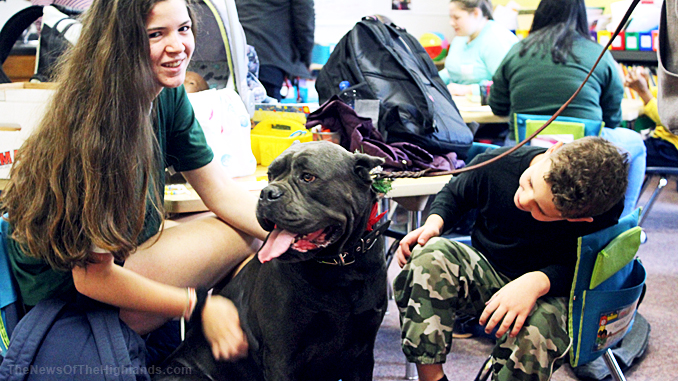
FMES embraces ‘Readers Workshop’
“Reading is hard. That’s why we spend more time on it every day than anything else.”
With that statement, Fort Montgomery Elementary School Principal Rachel Adelstein proceeded to explain ‘Readers Workshop’ to members of the Board of Education last week. She noted that this program is important for the board to understand because reading resources are also a large financial component of education at the lower grade levels.
“We are providing our students the opportunity to become good readers,” she said. “We want them to be flexible, resilient readers, and to make sure that we teach them a love of reading early.”
Students get large bags full of books — eight to ten, often — every week to read, usually on a common topic, but at their appropriate reading level. Teachers read with the students, students read in groups, and they read individually. Along the way, they are learning new strategies to understand what they are reading.
She said FMES teachers teach those new strategies on a daily and weekly basis with their students. They are working to get students comprehending what they are reading — “a group of ENL (English as a New Language) students recently performed ‘The Three Little Bears’ for a second grade class,” she said, “and those kids were super-duper excited to watch it”.
She explained that ‘reading’ begins in pre-kindergarten at the FMES.
“Our littlest students may not know their letters, or words, but they know how a book works,” she said, showing the board a video taken in Dana Franchini’s pre-K class where students learned lines from a book and filled them in as Franchini read aloud.
She said they also use programs such as Reading Buddies, where high school students are bused to the school to read with first graders; therapy dog visits to promote confidence in reading; and ‘Mystery Readers’, where every Friday several parents visit the school to read to their child’s class. They recently held a Mystery Readers Marathon, where there were readers from the community in and out of the school all day. It was, she said, a constant stream of community leaders, educators from the other buildings, police officers and others.
Part of the program, and the money component, involves buying “engaging, relevant” books for the students to read. Adelstein gave the example of outdated books in the school library — “a teacher told me she was reading a book the other day and in it they talked about a cassette player,” the principal said. “The students had no idea what that was. Sometimes books do become old.”
Teachers have gone out looking for funds to increase their own classroom libraries. They’ve had success via donorschoose.com, and the school district has received grants from companies like Scholastic. One of the most recent grants from Scholastic went to help fill ‘Little Free Libraries” in the FMES and HFIS, as well as around the community, and libraries in the hallways of the FMES.
Best of all, Adelstein said, data shows using programs such as Readers Workshop is increasing reading scores in the upper grades.
“But most of all, these kids really love reading,” she said. “And you’d be blown away by some of the conversations that are happening in classrooms. It’s really very exciting.”
